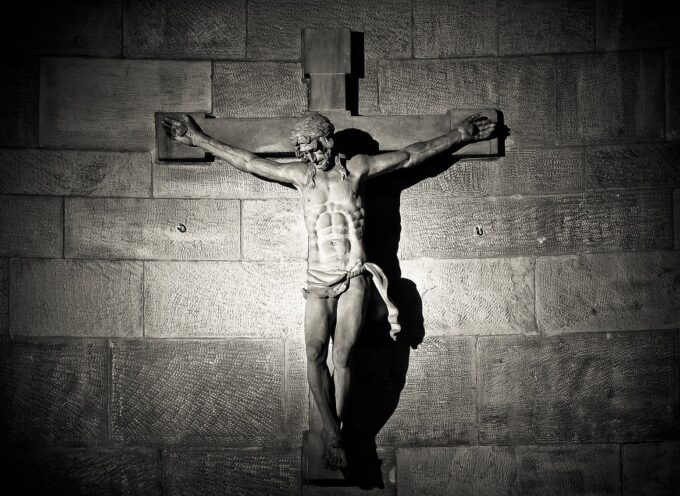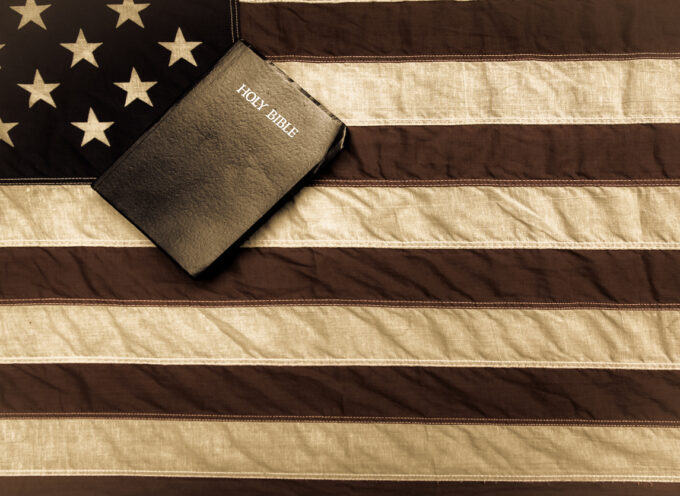The emergence of the alt-right provides an opportunity for God’s people to respond with truth and grace. If we respond with truth but not grace, we are bullies and haters. If we emphasize grace but don’t speak the truth, we are cowards and practical relativists. If we respond with truth and grace, we are Christian witnesses.
If we wish to be faithful witnesses in relation to the alt-right movement, we need a firm grasp of the Bibles teaching and wisdom in how to apply that teaching to our political moment. Toward that end, this article will begin by summarizing the Bible’s main storyline in relation to ethnicity before going on to offer a few reflections about our political moment.
The Bible’s Main Storyline
The Christian Scriptures teach us that our primary identity is religious (referring to the object of our worship) rather than “racial” (referring to our ethnic heritage, or combination of ethnic heritages). It also teaches that God creates all people in his image and likeness, shed his blood on behalf of the whole world, and calls us to love and value our “neighbor” even when our neighbor is ethnically different. As I wrote in another article, these biblical teachings can be seen throughout the Bible’s overarching storyline, and are most evident during three moments of the Bible’s story.
In the Beginning…
In the beginning, God created the world as a dazzlingly beautiful unity-in-diversity (Genesis 1). He created different kinds of vegetation, different kinds of animals, and even different types of people. The people he fashioned were different in terms of gender and, as history progressed, they were increasingly different ethnically. As the great theologian Abraham Kuyper noted, the beauty of God’s world is found in its “infinite diversity” and “inexhaustible profusion of variations.”
Even more significant is the fact that the Bible makes clear that every human being—no matter their gender or ethnic background—is created in the image and likeness of God (Genesis 1:27-28). We are made in his image so that we can flourish by living according to his moral order. Our great dignity is we are imagers of God and therefore we have worth and value. Our great humility is that we are not God and therefore cannot achieve or grasp “the good life” apart from God.
At the time of creation, humans flourished because we were rightly related to God, to each other, and to the created order; there was no spiritual, moral, or racial disunity.
At the Cross
Sadly, the first couple—Adam and Eve—committed mutiny (Genesis 3). Instead of taking their cues from God, they tried to navigate life apart from God’s loving word, apart from his moral prompts. As a result of their sin and the sins of their children, the world’s unity and goodness was corrupted. Instead of love for one another, there arose ethno-national rivalry, hatred, and even warfare.
In response to humanity’s rebellion God promised that he would send a Savior, and he remained true to his word. He sent his brown Middle Eastern Jewish Son, Jesus, to redeem us from our sins and restore our unity with God and with each other.
That is why the apostle Paul wrote, “You are all sons of God through faith in Christ Jesus…. There is neither Jew nor Greek, slave nor free, male nor female, for you are all one in Christ Jesus” (Galatians 3:26, 28). In other words, God commissions his Son to reestablish the relationship human beings have with him and with each other.
In the End
The Bible promises that Jesus will return one day to renew and restore the earth, and to heal and reconcile his people. In fact, the book of Revelation emphasizes the fact that in the future, all tribes, tongues, peoples and nations will gather before God as a unified diversity (Revelation 5:9). Once again, humanity will be rightly related to God, to each other, and to the created order; there will be no spiritual, moral, or racial disunity.
This unified worship will accomplish two things. First, it will reveal that God’s truth and goodness are powerful enough to evoke worship from every tribe, every language, every social grouping, and every nation. Second, it will vanquish racial supremacy once and for all by demonstrating that the ground is even at the foot of God’s throne.
Our Political Moment
Along with a firm grasp of the Bible’s teaching about human identity, worth, and value, we need to pray for wisdom in how to apply that teaching to our current moment. Here are a few brief reflections:
We shouldn’t be surprised.
We shouldn’t be surprised at the emergence of the alt-right, for reasons I enumerated in the last installment of this series. There are more racists in the United States than we might typically imagine, and alt-right themes will appeal to many of them. The secular progressive agenda has a stranglehold on our most powerful cultural institutions; its moral relativism and public scorn for traditional Christianity have succeeded in deflating authentic evangelical influence, thus assisting in the creation of a new “post-religious right.” Major power brokers on the Left and the Right have neglected working-class Americans in the way they’ve pushed economic globalism. Et, as they say, cetera.
We should resist the temptation toward identity politics.
Let me be clear. I am not saying that various groups of citizens (ethnic, economic, religious) cannot work to promote the well-being of their constituents. They can and they should. But I am saying that we should resist the sort of identity politics that seeks the good of its own tribe at the expense of other “tribes” or that considers its own people inherently superior to other people. Identity politics is the death of democracy. If identity politics doesn’t die, our democracy will die.
We should be comfortable with our own identity.
When I say that we should resist the temptation toward identity politics, I do not mean that we should suppress our ethnic identities. God created a world in which many different ethnic groups would emerge; and the Bible’s description of the end times includes a scenario in which the kings of various nations bring their treasures and lay them at God’s feet. In other words, the Bible doesn’t give us some sort of homogenized or color-blind outlook. In a biblical outlook, we should be comfortable enough in our own communities (social, ethnic, religious) that we can not only celebrate what is good in them but critique our own sins.
We should find our identity primarily in Christ.
When Christ returns, he will install a one-world government and a one-party system in which he reigns over worshipers from every “tribe, tongue, nation, and people” (Rev 5:9), and in which justice will roll down like the waters (Amos 5:24). In the mean time, our primary “community” is the church—the people of God, the body of Christ, the temple of the Spirit, the light to the nations. And our community should be known by its love for all people and its desire for justice to be upheld for all people.
We should resist the temptation to demonize and dehumanize the alt-right.
We should resist the temptation to demonize and dehumanize the alt-right, even though many alt-right persons demonize and dehumanize other human beings. Scripture teaches us that no human person—or community of persons—is pure evil. None are too far from God for his outstretched arm to reach. The same God who created humanity in his image shed his blood in order to save them from slavery to sin and for freedom in Christ. Christianity is a religion for sinners, including those of us sinners who are reading (or writing) this article.
We should fight racism tooth and nail, from the pulpit, the press room, and the public square.
In his wisdom, God caused his Son—our Savior—to be born in a Middle Eastern Jewish body. Christianity sprouted in the Middle East, but from there, Christianity exploded into Asia and North Africa, and to Europe and North America, and now, finally, across the face of the earth. One day our Savior will return to consummate his reign as the righteous king. He will be worshiped by a vast multitude of humanity, unique in their ethnic heritages but unified in their religious identity as children of the King.
Until that time, the church’s task is to serve as a preview of that coming kingdom. We can do so by recognizing that our primary identity is religious (referring to Christ, the object of our worship) rather than racial (referring to our ethnic heritage, or combination of ethnic heritages); by affirming that God creates all people in his image and likeness; by declaring that God’s Son shed his blood on behalf of the whole world; and by loving and valuing our “neighbor” even when our neighbor is ethnically different.
[Note: The current post is the final installment of a four-part series on the anti-gospel of the alt-right, including a summary of the alt-right’s ideology, a profile of its leaders, a response to FAQs, and a gospel-centered evaluation of it as an ideology and a movement.]
Subscribe
Never miss a post! Have all new posts delivered straight to your inbox.







